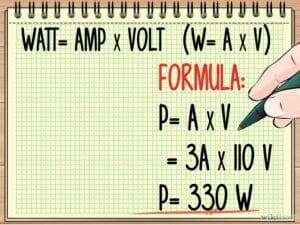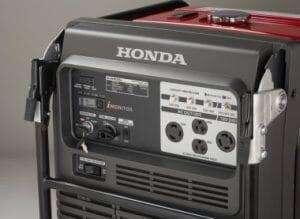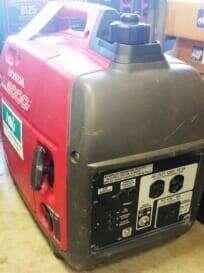Picking the right generator for your event or project is crucial.
It’s important to always calculate how many watts are needed. Start by making a list of all the items you need to power and how many amps each item requires to run. The number of watts is equal to amps multiplied by volts. Then simply multiply the amount of Amps you need by Volts (typically 110V), will equal the size generator you will need.
For example: if you need to run 50AMPS X 110V=5500 or higher generator.

- Never run a generator indoors or in partly enclosed areas such as garages. Only use outdoors and away from windows, doors, vents, crawl spaces and in an area where adequate ventilation is available. Using a fan or opening doors and windows will not provide sufficient ventilation.
- Operate the generator only on level surfaces and where it will not be exposed to excessive moisture, dirt, dust or corrosive vapors.
- Do not overfill the fuel tank. Always allow room for fuel expansion.
- Never add fuel while unit is running or hot. Allow generator and engine to cool entirely before adding fuel.
- Never store a generator with fuel in the tank where gasoline vapors might reach an open flame, spark or pilot light.
- Do not connect your generator directly to your home’s wiring or into a regular household outlet. Connecting a portable electric generator
directly to your household wiring can be deadly to you and others. A generator that is directly connected to your home’s wiring can ‘back feed’
onto the power lines connected to your home and injure neighbors or utility workers. - The generator must be properly grounded. If the generator is not grounded, you run the risk of electrocution. We strongly recommend that you
check and adhere to all applicable federal, state and local regulations relating to grounding.
- Allow at least five feet of clearance on all sides of the generator when operating.

- Keep the generator dry
- Inspect the generator regularly and contact the nearest authorized dealer for parts needing repair or replacement.
- Do not overload the generator. Do not operate more appliances and equipment than the output rating of the generator. A portable electric generator should be used only when necessary, and only to power essential equipment.
